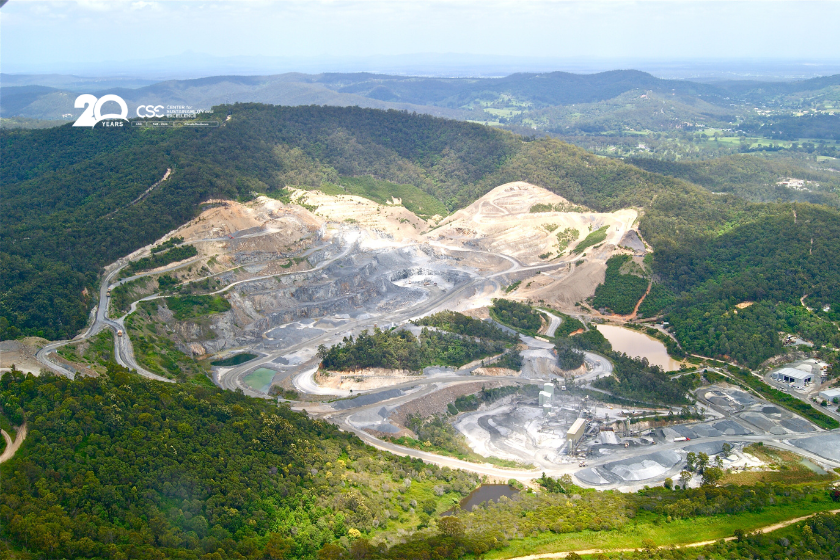Canada’s Plastic Ban Lawsuit: Navigating Regulatory Challenges with ESG Training

Canada’s Plastic Ban has hit a legal roadblock. A federal court challenge now threatens to reshape how the country regulates plastics. As government bodies, industries, and sustainability professionals follow the case, one truth becomes clear. Navigating ESG (Environmental, Social, Governance) today requires more than ambition—it requires up-to-date knowledge. The Legal Battle: Industry vs. Regulation In 2022, […]
Mining Industry’s ESG Standards Overhaul: Preparing Professionals for Change

The mining industry is undergoing a significant transformation. In October 2024, global mining associations—including the International Council on Mining and Metals (ICMM)—introduced a joint initiative to simplify and harmonize ESG (Environmental, Social, and Governance) standards. This move aims to make sustainability reporting more consistent, comparable, and operationally useful. For years, fragmented ESG frameworks hindered transparency […]
Understanding ISSB Reporting Standards: A global ESG baseline

The International Sustainability Standards Board (ISSB) was launched by the IFRS Foundation to create a global baseline for financially material sustainability disclosures. In June 2023, the ISSB released its inaugural standards: IFRS S1 – General Requirements for Disclosure of Sustainability-related Financial Information IFRS S2 – Climate-related Disclosures Both are effective for reporting periods starting January […]
Canada’s Net-Zero Electricity Grid Delay: What It Means for ESG Professionals

Canada has long positioned itself as a global leader in sustainability and climate action. So when the federal government announced in December 2024 that it would delay its Canada’s Net-Zero Electricity Grid target by 15 years—from 2035 to 2050—it raised concerns across the ESG and energy sectors. This policy shift doesn’t just reflect technical and […]
ESG Leaders Across Europe Join Forces in June 2025 Training

The European Certified Sustainability (ESG) Practitioner Program, held on June 25–27, 2025, brought together senior professionals from across the continent—and beyond—to strengthen their knowledge and capabilities in ESG strategy, compliance, and reporting. Over three immersive days, participants engaged in high-impact sessions, case study discussions, and practical exercises guided by experienced sustainability consultants from the Centre […]
ArcelorMittal’s Hamilton Closure: A Case Study in ESG Gaps and Industrial Transition

In June 2025, ArcelorMittal Dofasco announced it would close its wire-drawing mill in Hamilton, Ontario, cutting 153 jobs. The mill produced high-carbon wire for sectors like automotive and construction. Read more about the closure. Though the company cited cost efficiency, the decision reflects larger shifts—economic, environmental, and social—shaping Canada’s industrial future. It highlights the urgency […]
Shell’s LNG Expansion: Implications for Canadian Sustainability Experts

In a major energy announcement, Shell revealed plans to add up to 12 million tonnes of new liquefied natural gas (LNG) capacity by 2030. Central to this expansion is Canada—specifically, the LNG Canada project in Kitimat, BC. As one of the largest energy investments in the country’s history, it represents both opportunity and risk. For […]
Alberta’s Pipeline Plans: The Role of ESG Training in Energy Projects

As Alberta’s government advances plans for a new crude oil pipeline to the West Coast, the debate around energy and sustainability intensifies. The province relies heavily on energy revenues. However, today’s infrastructure must align with modern environmental and social expectations. ESG (Environmental, Social, and Governance) standards are now essential in shaping energy projects. A Strategic […]
RBC’s Shift in Sustainable Finance: A Wake-Up Call for ESG Professionals

In a surprising move that has sent ripples through the financial and sustainability sectors, Royal Bank of Canada (RBC), one of the nation’s largest lenders, has decided to walk away from its sustainable finance targets. This development raises critical questions about the role of ESG (Environmental, Social, and Governance) commitments in the Canadian financial industry […]
Green Leadership at the G7: What the Kananaskis Summit Means for the Sustainability Agenda

From June 15 to 17, global leaders met in Kananaskis, Alberta. This was the 50th G7 Summit. More importantly, it came at a time of rising global instability. Geopolitical tensions are growing. So are economic risks and climate crises. Therefore, this summit is not just tradition. It’s a test of the G7’s commitment to a […]
